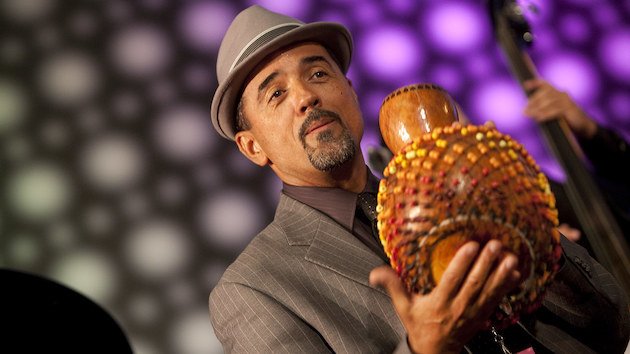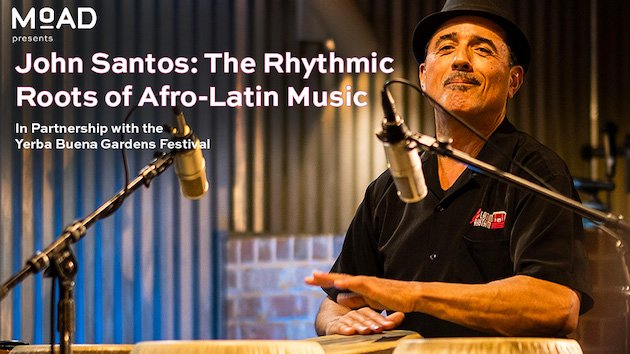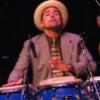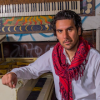
In a conversation in 2018, percussionist, multi-Grammy nominee, composer, producer, educator and bandleader John Santos says Afro-Latin music is “the art and poetry of the people.” As a longtime champion of Latin music from an extended family of Puerto Rican musicians, Santos suggests the music born out of violent colonialism expresses a voice of resistance that unifies people across race, age, gender, faith, ethnicity, and economic or educational divides.
Now Santos is presenting an educational series that takes you on that journey. In a four-part, online lecture series every Wednesday evening Sept. 23–Oct. 14, Santos will introduce Afro-Latin music, unearthing the cultural history and rhythmic roots of the genre’s Cuban, Puerto Rican, and Brazilian forms. Presented by the Museum of the African Diaspora in San Francisco with the Yerba Buena Gardens Festival, each two-hour, discussion includes live demonstrations by Santos of selections from his audio and video recordings. Tickets are offered on a pay-what-you-can basis, and you can use the MOAD website to register.

Details:
Wednesday, September 23 | Cuba Ritmática Part 1
Afro-Cuban Roots
Bembé. Yoruba-derived sacred music.
Palo. Kongo-derived sacred music.
Makuta. Kongo-derived secular music.
Wednesday, September 30 | Cuba Ritmática Part 2
Expresión Criollo
Yambú. One of the original styles of rumba.
Danzón. Creolization of euro-instrumentation.
Son. Seminal root of Cuban popular music.
Wednesday, October 7 | Puerto Rico Ritmático
Afro-Puerto Rican Roots
Bomba. The most African of Puerto Rican genres.
Plena. Creole music of the masses.
Wednesday, October 14 | Brasil Ritmático
Black Brazil Beyond Bossa
Samba. The infectious national art form.
Baiao. Northeastern roots.




